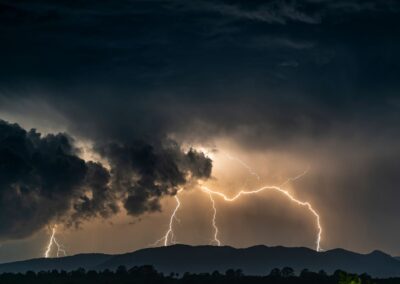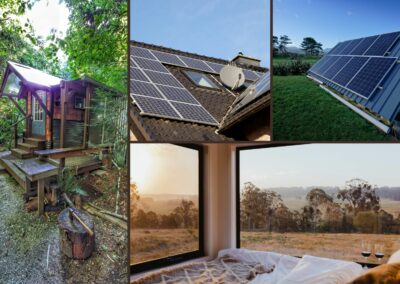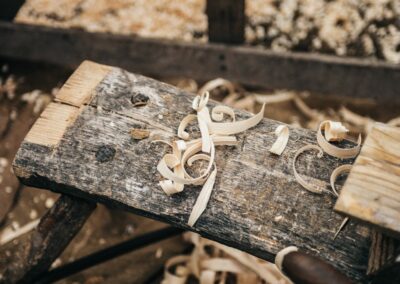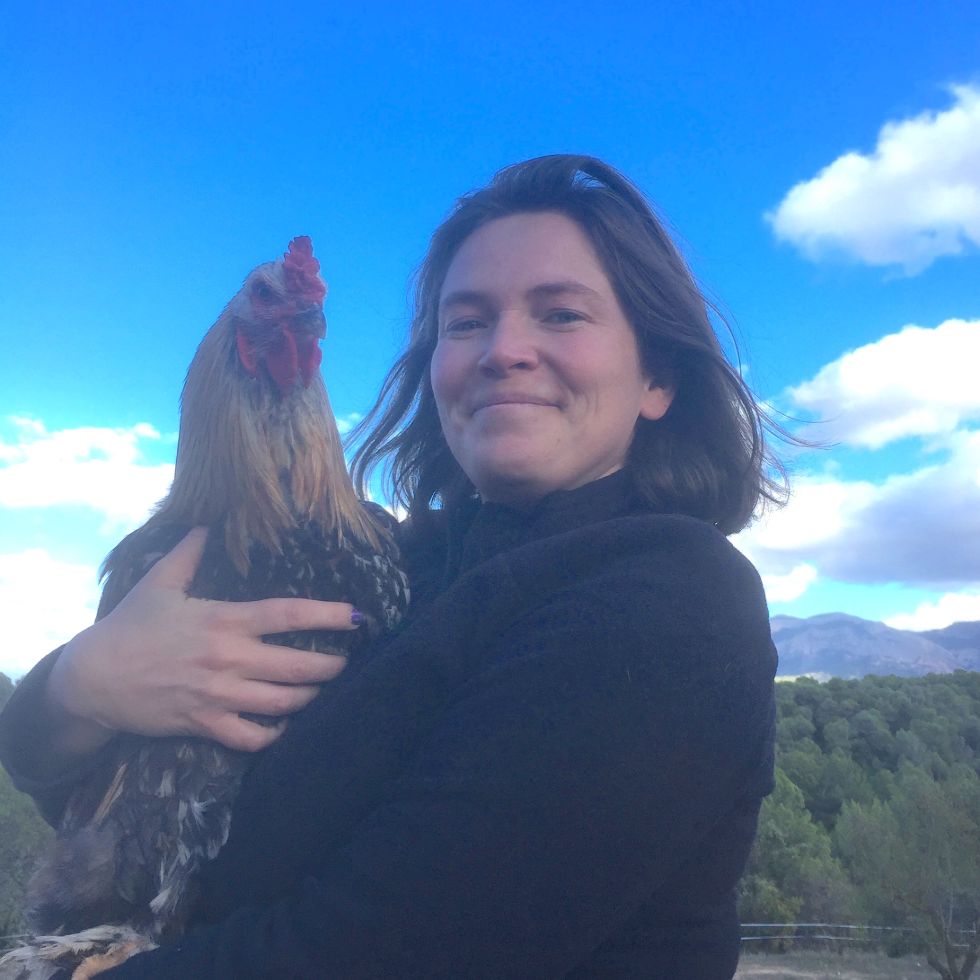Throughout the year, we get a LOT of visitors who want to come and pick our brain about doing what we did – move to Spain to go live off-grid. Some of them have just bought a property, some of them are looking for the perfect piece of land – and others have beautiful dreams of a different and more simple, off-grid lifestyle.
Now we certainly don’t mind repeating the same stories and pieces of advice over and over again… love meeting all those new people.
I recently asked the question “what do I really want people to know when they come here? What advice would I want them to leave with?” – and I came up with these 7 nuggets…
1. Take Your Time To Make Big Decisions
You may think you are in a hurry, but you’re really not. If something doesn’t feel 100% right, don’t do it. Being a tiny bit scared might be a good thing – but having an odd feeling about something isn’t.
We almost (almost!) bought a property that would have been SO wrong for us… It didn’t really feel like the dream, but it was cheap and we just didn’t think we would find anything better.
Thankfully, we decided to go on one more trip before making the decision. And that trip got us where we live now.
One thing we learned was the process will take longer than you think anyway; those few months aren’t going to make a difference in the bigger picture. Make sure you’re comfortable with a decision before setting it in stone.
2. Learn the Language!
If you’re moving to a different country, it’s essential to learn the local language – even if it’s just the basics.
Please don’t dismiss this, even if you think you’re not set up to learn new languages.
Not ready for a class? You can start with something as simple as the Duolingo app.
These are a couple of situations we or our friends have encountered in the past years…
- You get sick and need to see a doctor. Even with a dictionary, it’s HARD telling someone what happened and how it hurts, when you don’t speak the language. You may get a friend to come with you – until the day there’s an emergency and your friend can’t be reached.
- There’s something wrong with your systems and the installer needs to come by – he’s not able to tell you when exactly (after his previous job finishes), so you end up having a friend willing to translate sitting around your house twiddling his thumbs all day.
- Hunters come to tell you they’re going to hunt on your property this Sunday and you need to keep your animals in. You think it’s random friendly neighbours coming to meet you and say hi – until Sunday comes and there’s hunting dogs chasing your pets EVERYWHERE.
- You get multiple notifications from the local town hall saying bad weather’s on its way, and you should prepare for it. On day #2 of the storm, you realise you’re out of wood for the fire and out of fuel for the generator, and locals have no intention to come and clear the track to your house anytime soon.
Hey, and let’s be fair – when you go and live in another country, isn’t it just “the right thing to do” to learn the language?
3. Join In On The Local Fun!
Visit local ferias and fiestas – make sure you show up for village dos.
Meet the local mayor, the local business owners, spend time in the local bar (especially if you like sports), and show your face in the local shops. People in small villages tend to know when someone “new” bought a property nearby, and you get extra brownie points if you make the effort to get to know the villagers.
4. Talk To People. Many People.
Talk to as many people as you can – both locals and people who are doing things similar to what you do. There are as many opinions and experiences as there are people; talking to different sources will help you get a clear idea of the situation and possibilities.
Also, each has its own experience and expertise – from gardening over chickens to off-grid systems or making olive oil… you’ll learn something from each conversation.
5. Be Respectful Of People’s Time.
If you spend half a day (or more) with someone who answers all your questions and shares their experience with you, do them the courtesy of checking in with them later on or thanking them n a different way.
When we spend some time helping people out, we appreciate hearing what they end up doing – especially if they decide to buy after all, and a year later we discover they’re building a house in the next village.
We know of several couples/families who used to welcome newcomers, invite them for a drink at their home, answer all their questions, sometimes even going with them for advice or translating… but then got weary after years of this and rarely getting acknowledged for the support.
6. Don’t Dismiss Other People’s Experiences
When you hear negative stories, don’t dismiss them (all) as people being stupid. Sometimes they are, but often there’s a lesson to be learned.
It’s what happened to us; we heard so many stories and dismissed them as
- Those people didn’t have much money, probably ran out of funds, so that’s why the work wasn’t finished
- They should have checked and put things on paper
- We know our stuff better and would be able to stop things going wrong if it happened to us
- This story is just too crazy – that company has so many good reviews, surely he’s trustworthy?
Boy, were we wrong…
7. Be Kind To Yourself
This is the biggest lesson to be learned from adopting an off-grid lifestyle…
The to-do list is never-ending. There’s always another project. And usually, not enough money.
Of course, it stands to reason that EVERYTHING needs to get done in the shortest amount of time possible… But give yourself a break.
Take weekends off, even if that means your backyard will stay messy for longer. Do a bit of yoga (or another form of stretching) in the morning to avoid painful muscles after a hard day’s work. It really helps.
And don’t forget to ENJOY your life. It’s the dream you’ve been working towards… don’t turn it into a yoke.
Not sure what else you should have in place before you make the leap to a more simple, off-grid lifestyle? Check out this checklist!









0 Comments